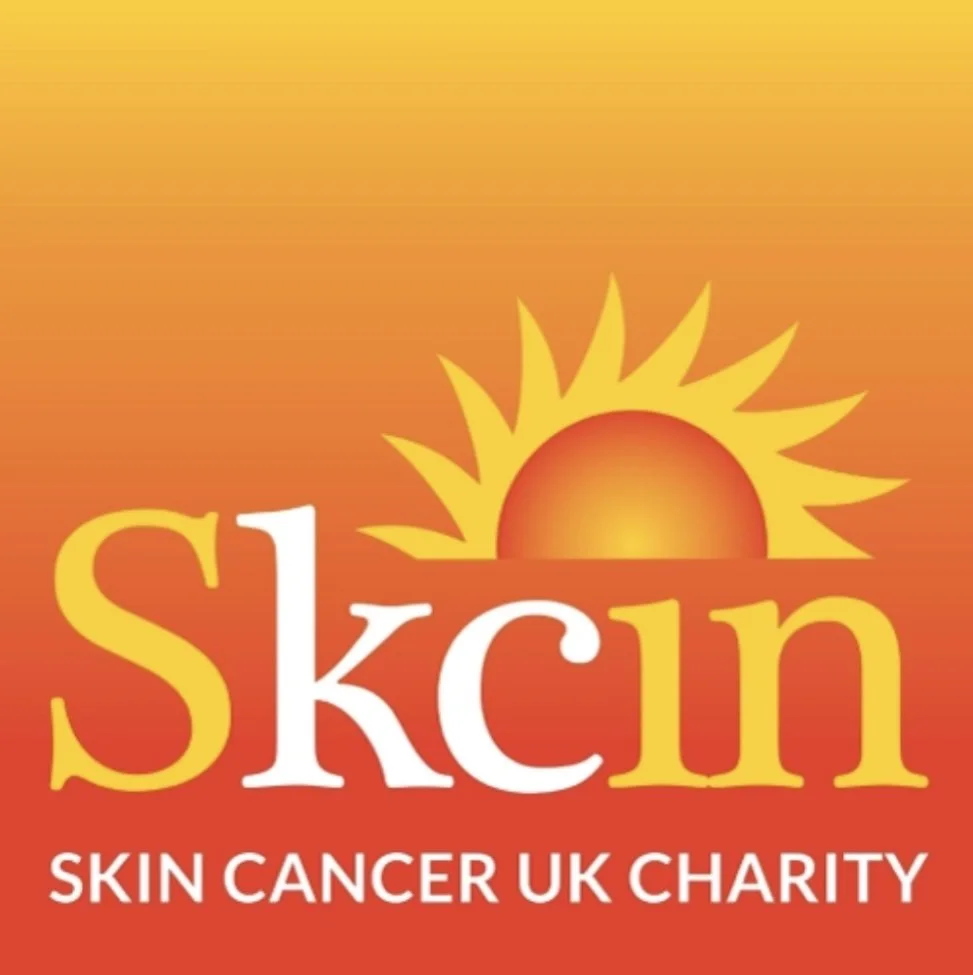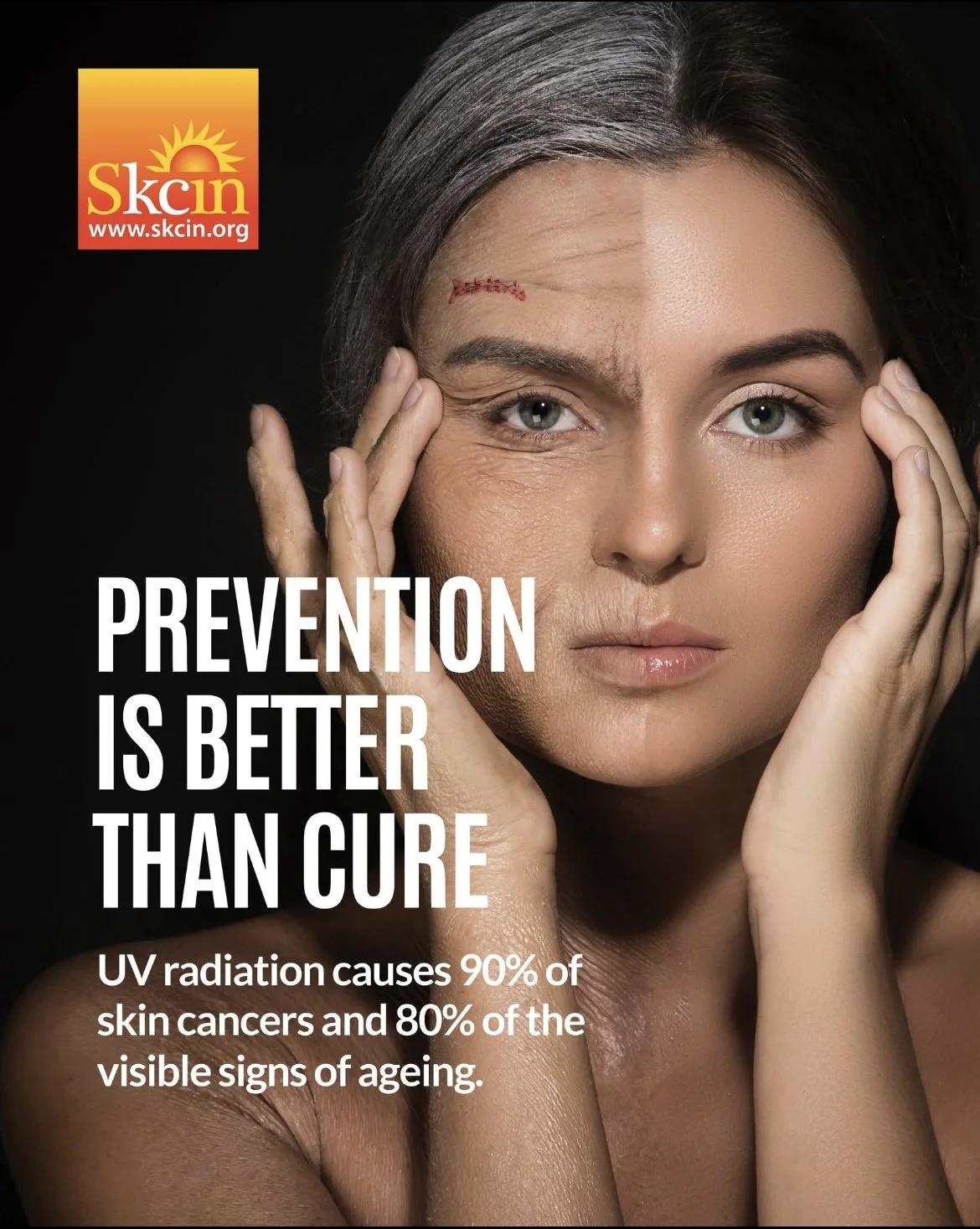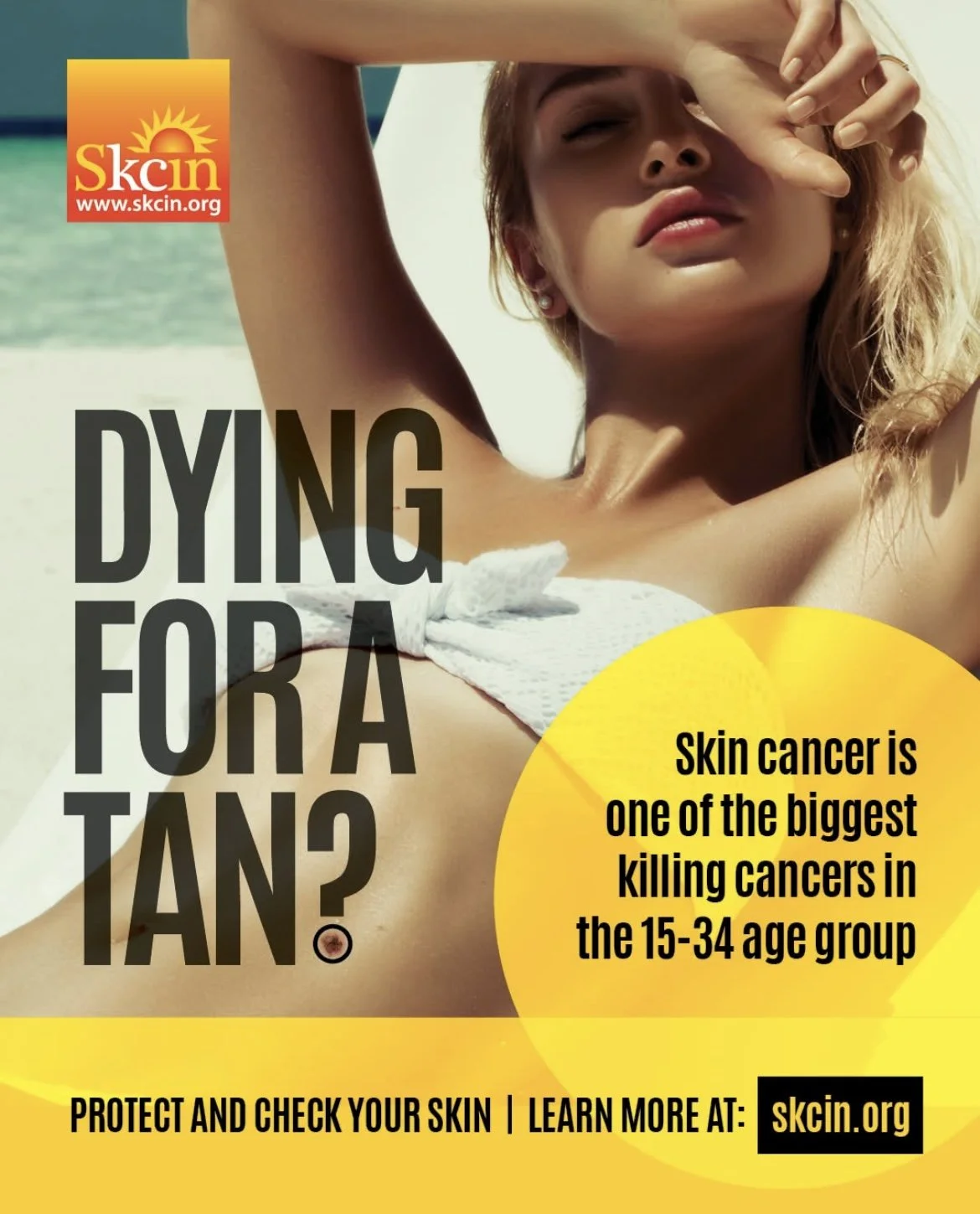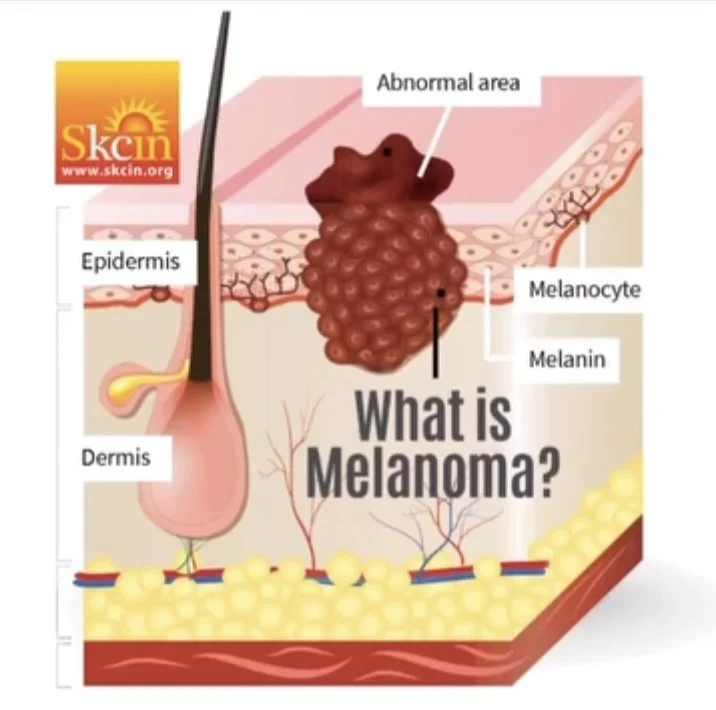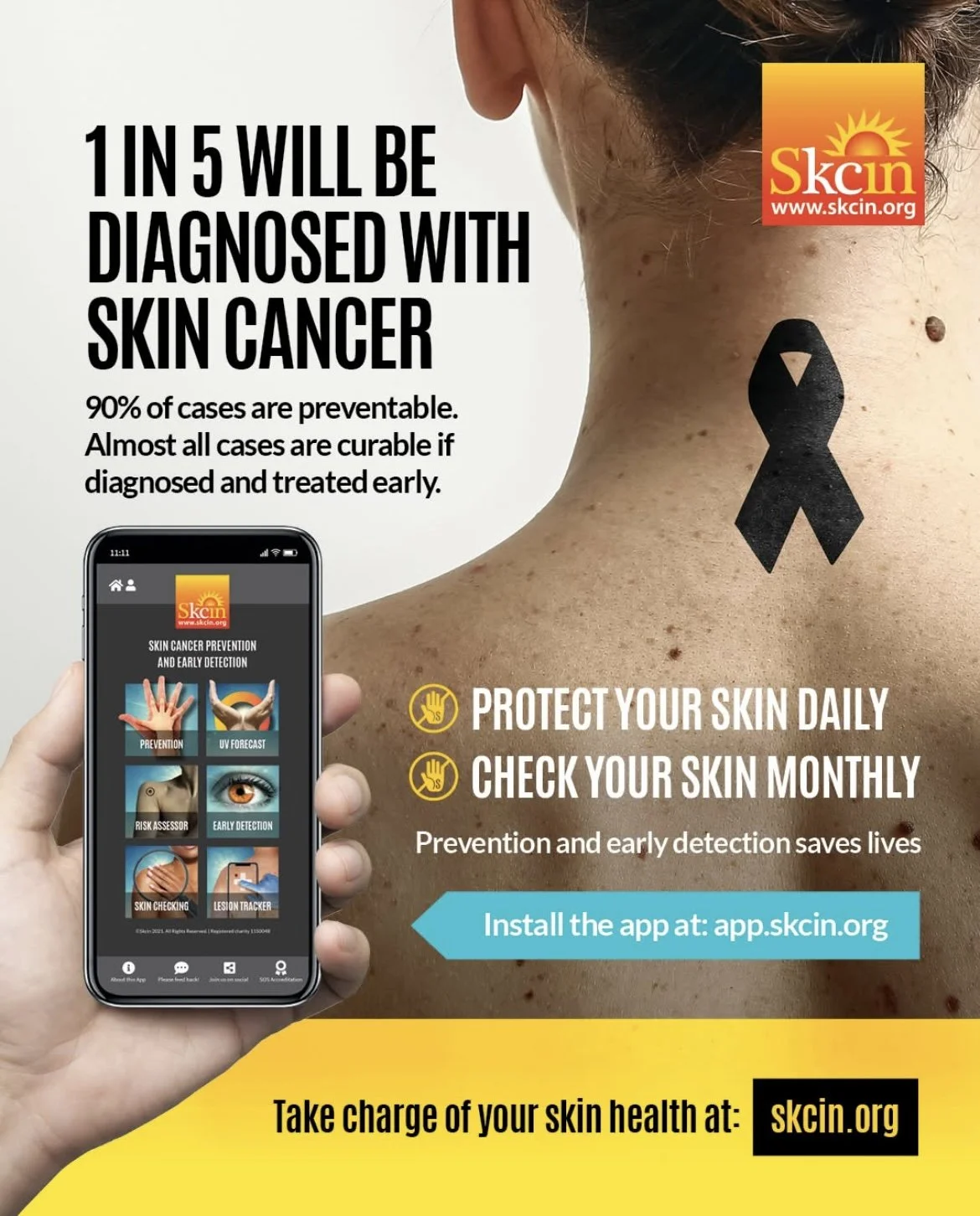
SKCIN - Skin Cancer Awareness
Who are SKCIN?
Skin cancer is the most common type of cancer globally. Most cases are caused by ultraviolet (UV) radiation, largely preventable with education and behaviour changes, talking openly helps reduce the stigma around diagnosis and treatment, alongside encouraging sunscreen and avoidance of risky behaviours. Early detection = higher survival rates. Ohh! is a Dental Hygienist + Medical Skin Facialist practice, we are focused on skin health, rejuvenation and SPF.
At Ohh! we support SKCIN, the UK’s leading skin cancer awareness charity, formed by the family of Karen Clifford (the KC in Skcin) who passed from melanoma in 2005. The pain and destruction caused by Karen’s diagnosis and subsequent death left her family feeling compelled to ensure this was not in vain.
They specialise in developing long-term, nationally accessible, educational solutions to save lives and suffering from all forms of skin cancer through the power of prevention and early detection. With around 90% of all skin cancers preventable and early detection and diagnosis vital, they knew that education was key to combating the soaring rates of skin cancer in the UK.
To find out more about their work visit:
https://www.skckin.org/
Some Facts
Tanning
Even if your skin tans rather than burns, by exposing your skin to UV radiation for prolonged periods in order to develop a tan - you are increasing your risk of skin cancer.
Tanning is a visible sign of UV damage and a warning sign that your skin is working hard to defend itself from the damaging effects of UV radiation. Every time you tan, you damage the DNA in your skin and put simply the more times you damage your DNA- the greater your risk of developing all types of skin cancer, including melanoma.
No Tan is Worth Dying For - for information, tools, resources to help you reduce your risk of skin cancer and detect the early warning signsL
Go to: skcin.org
Melanoma
Melanoma begins in melanocytes - the cells that produce the pigment melanin that colours the skin, hair and eyes and tans the skin when it is exposed to UV radiation as a form of defence. Melanocytes also form moles, where melanoma often, but not always develops.
Cancerous growths develop when unrepaired DNA damage to skin cells (most commonly caused by over-exposure to UV radiation) trigger mutations that lead the skin cells to multiply rapidly and form malignant tumours.
As with all skin cancers, melanoma can often be seen on the skin as an abnormal lesion, making it easier to detect in its early stages. But, if left undetected, melanoma can spread to distant sites or organs.
Once melanoma has spread to other parts of the body it is referred to as ‘metastatic melanoma’ at this stage it becomes difficult to treat and prognosis can be poor, so early detection, diagnosis and treatment is vital.
Melanoma often arises from otherwise normal appearing skin (about 75%) or from within a mole or freckle, which starts to grow larger and change in appearance.
Always check your skin once a month for the early warning signs and if you notice anything new, unusual or changing - seek immediate advice from your GP or dermatologist.
For all the advice, guidance and self-management tools you need to reduce you risk of skin cancer and detect the early warning signs - install the Skcin App on your mobile device…
Go to: app.skcin.org
Protection
Protect your skin daily from sun damage
Get to know your skin and what is normal for you
Check your skin monthly for the early warning signs
Seek immediate advice with any new, unusual or changing moles or skin lesions
Install the Skcin app - for all the advice, information, images, and self management tools you need to help you take charge of your skin health and surveillance
Go to:
app:skcin.org

